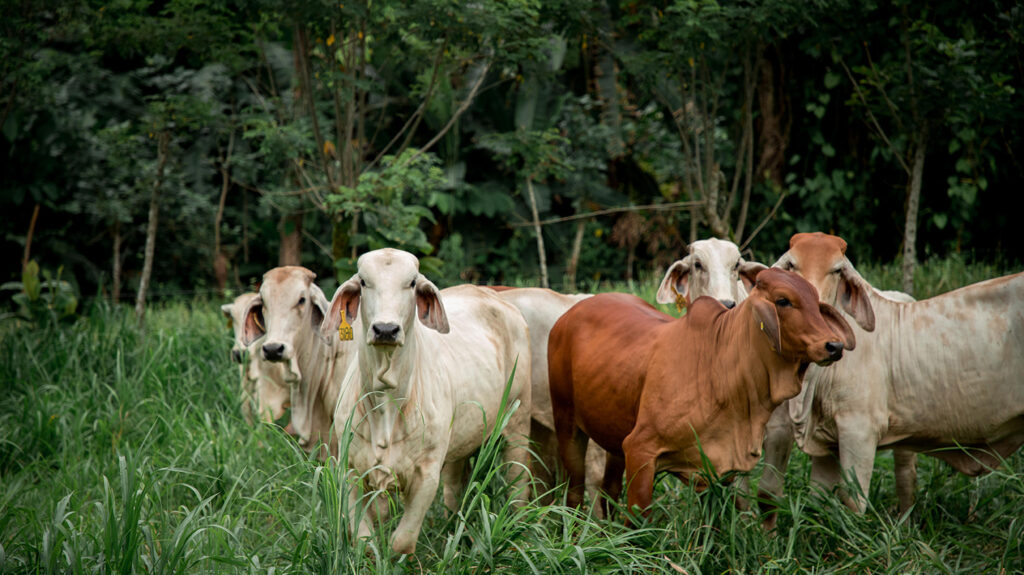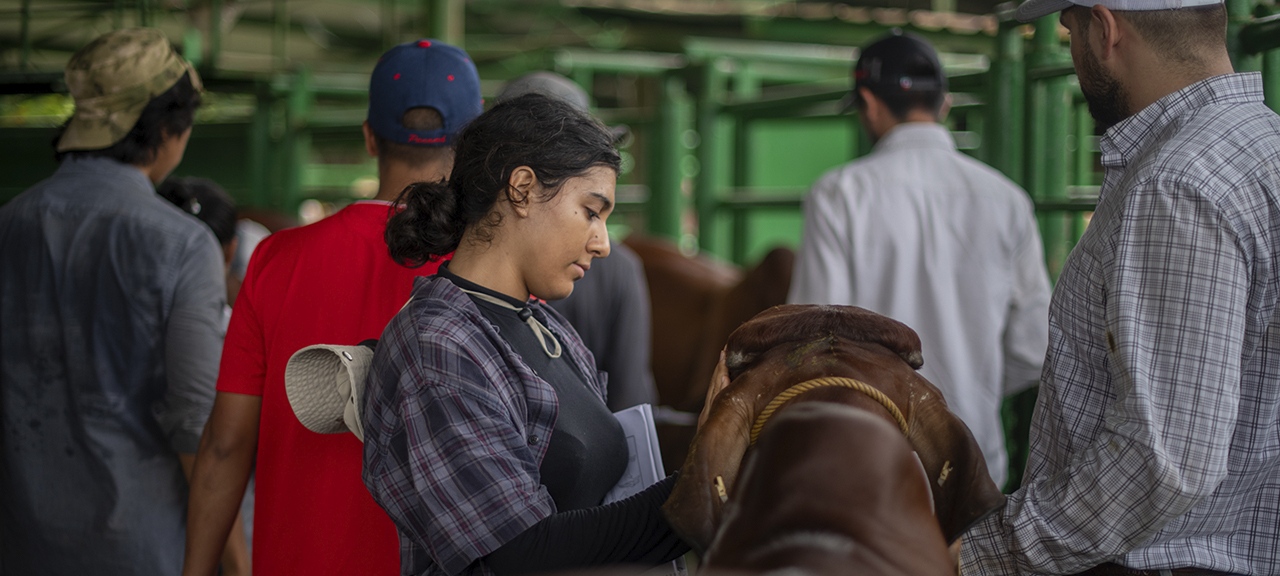At EARTH University’s Guácimo Campus, the teaching farms serve as the main classrooms for students. They are spaces where hands-on experience is combined with technical knowledge under the guidance of faculty and staff. One of these is the Livestock Farm, where students learn about Animal Production through a strong commitment to sustainability and the welfare of cows, horses, sheep, and other species.
Since 2024, Sustainable Agricultural Systems professor Leslie Antonio González has led a groundbreaking research project—pioneering in both Costa Rica and Central America—focused on the use of ruminal boluses: small devices installed inside a cow’s rumen, the largest compartment of its stomach. These high-tech sensors monitor the animals’ physiological status in real time, allowing for better-informed decisions regarding their health, reproduction, and overall well-being.
Originally designed for confined cattle in Europe, these devices are now being tested for the first time under tropical conditions in crossbred cows adapted to heat and rustic conditions. The ruminal boluses collect key data such as temperature, pH, activity levels, water intake, and signs of heat, and send it to the cloud. Through a mobile app, the system issues alerts about physiological changes—for example, if a cow stops drinking water, has an abnormal body temperature, or displays inactivity possibly related to illness. In color-coded graphs, each dot represents an observation, and red or yellow alerts are triggered when anomalies are detected.
This technology represents a tool to anticipate disease, reduce antibiotic use, and improve animal quality of life. Of the 25 cows at the Livestock Farm, 10 were selected for the research project. These cows had never calved before, showed similar levels of milk production, and had no more than three breed crosses. “This type of technology was created for purebred cows in temperate climates. Our cows need a genetic mix to survive and produce milk in the tropics,” says González, who has taken on the challenge of adapting the system to tropical conditions.

Several students are involved in this research and are working on analyzing variables such as heat stress, correlating increased body temperature with potential illnesses. Each time the system issues an alert, the students check the cow’s health by measuring respiratory rate, heart rate, and behavior. So far, every alert has matched observable clinical signs.
Beyond individual monitoring, the data is opening new research avenues. For example, a study is being conducted—in collaboration with faculty members including Lester Rocha, Graduation Project professor and expert in silvopastoral systems—analyzing the effect of water temperature on animal welfare, while another study is comparing the performance of cows in shaded and unshaded pastures.
The data is also being used to improve the campus dairy operations, for example, by installing fans to regulate the cows’ body temperature. Soon the dairy operation will be automated with smart collars and systems that automatically deliver feed and monitor reproductive health for each cow.
In Costa Rica—a country with broad access to electricity and connectivity—smart livestock farming is a real opportunity. Technologies like ruminal boluses could revolutionize the livestock industry by encouraging more sustainable and animal-welfare-oriented practices.
